Your body, your rules.
Good news — getting birth control just got a little bit easier. The new Pharmacy First scheme will make it possible for millions of women to get their hands on birth control without the need for a prescription.
The scheme will also make medication more accessible in cases of inusitis, sore throat, earache, infected insect bite, impetigo, shingles, and uncomplicated urinary tract infections in women.
As Janet Morrison, chief executive at Community Pharmacy England said, “It makes perfect sense to use community pharmacies as a first port of call for healthcare advice, access to contraception and health checks such as blood pressure tests."
Of course, it's worth remembering that the pill isn't the only option when it comes to birth control. Many of us were passed a prescription for the pill on our first sexual health visit to the doctor and haven't questioned it since. And why would we? The introduction of the contraceptive pill in 1961 marked the liberation of women, release from the fear of pregnancy and the ability to embrace our sexual agency.
But the fact is, medical technology has moved on and there are so many contraception alternatives out there that might be better suited to you. Including ones that have yet to hit the market, like the microneedle skin patch and the monthly pill.
Originally developed for the painless administration of vaccines, the new long-acting contraceptive is being developed with microneedle skin patch technology.
When the patch is applied for a few seconds, the microscopic needles break off and stay under the surface of the skin, where biodegradable polymers release a contraceptive drug called Levonorgestrel - a synthetic progestogen and the main component in the morning after pill.
There's no risk of the patch falling off either, like with current contraceptive patches. You simply self-administer your patch once a month, and after five seconds, you're good to go.
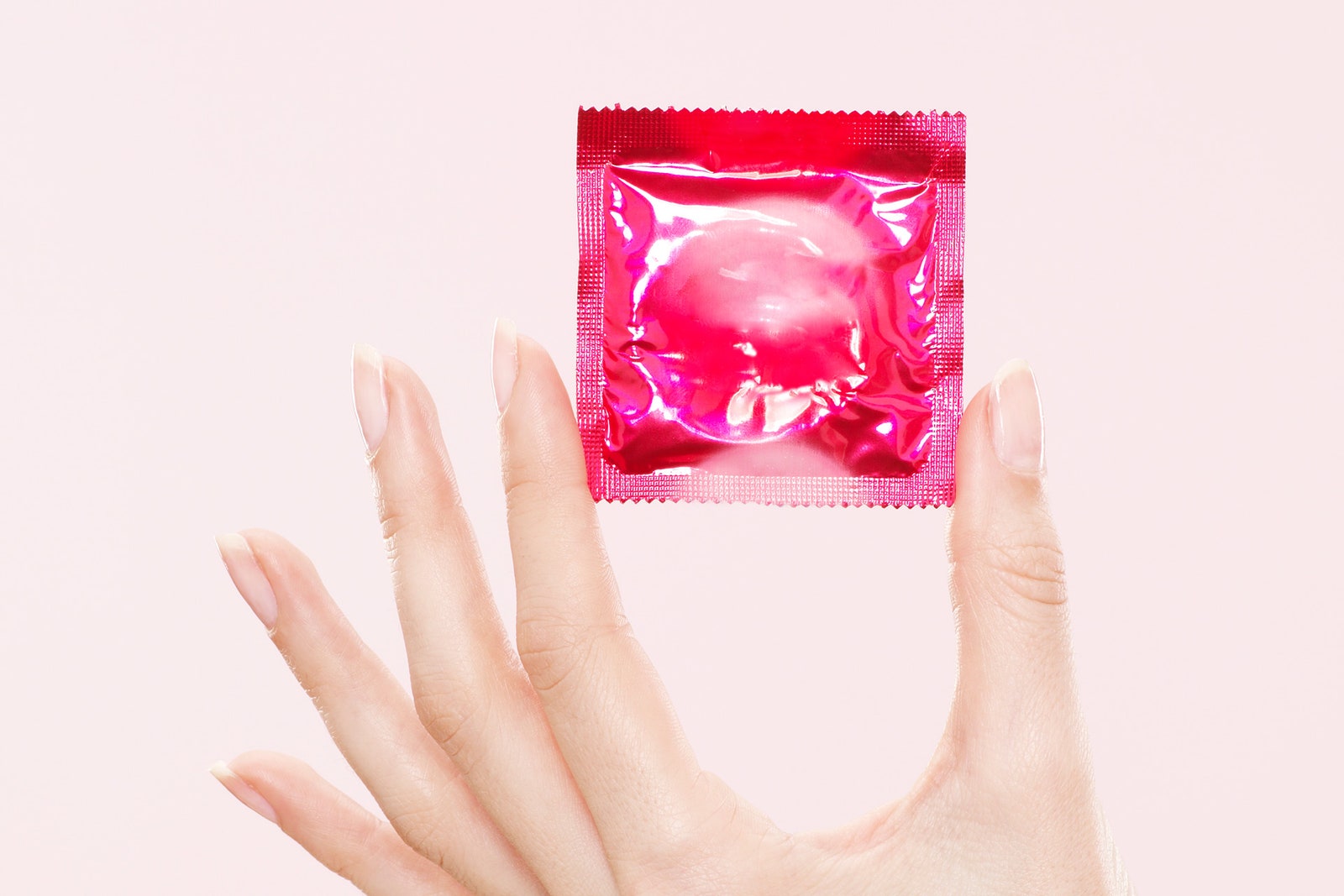
The microneedle skin patch isn't the only alternative contraceptive product that could revolutionise our sex lives; the reusable condom is currently in development, too. This may appeal to those who would rather not take hormonal contraception.
Recent studies have shown that while progestogen-based contraceptives can reduce the risk of some cancers, they do show an increased risk of breast cancer - 20% to 30% particularly in older people taking the mini pill or progestogen-only pills.
Kirstin Pirie, a statistical programmer at Oxford Population Health and one of the lead authors of the most recent study, has said that, “as breast cancer risk increased with age, younger women may consider the risk sufficiently small that it is outweighed by the benefits of contraceptive use during their reproductive years.”
The research, published in PLOS Medicine, is based on data from 9,498 women who developed invasive breast cancer between ages 20 to 49, and 18,171 closely matched women without breast cancer. The new data is important as progestogen-only contraception is growing in popularity, with prescription levels matching those of combined oral contraceptives - progestogen and oestrogen -in 2020.
But it's not just synthetic hormones that could be an issue. Barrier methods like condoms are the only contraception methods are the only ones that prevent STIs so it's worth using them. According to contraception experts The Lowdown, the UK Government has reduced spending on STI testing and contraception in the past seven years.
The Lowdown also reports that 40% of women in low and middle income countries give up on their contraception after a year of use because they're dissatisfied. Barrier methods are super effective but they can be expensive. For developing countries, the need for a safe sex method that's affordable, accessible and reusable has prompted the development of reusable condoms.
Pearl Health is hoping to develop a material that can withstand re-use and intermittent sterilisation via boiled water. All without dulling sensation, because, let's be honest, nobody will use it if it doesn't feel good.
Meanwhile, while we wait like such inventions to appears (alongside the male contraceptive pill), we decode the current world of contraception so you can take back control...
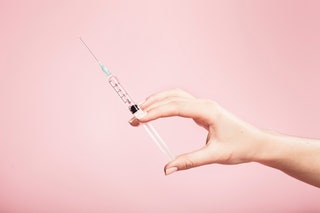
THE INJECTION
What is the contraceptive injection?
The contraceptive injection (Depo-Provera, Sayana Press or Noristerat) releases the hormone progestogen into your bloodstream to prevent pregnancy and lasts between eight and 13 weeks.
How effective is the contraceptive injection?
99% effective, with no room for human error, too.
Plus points to the contraceptive injection
The one off injections covers you for weeks, meanings you don't need to think about it again for a while.
It doesn't contain oestrogen so you can still use it if you get migraines or want to avoid the associated risks.
Negatives to the contraceptive injection
Alongside the usual hormonal side effects (mood swings, acne, and irregular periods) it can also take up to one year for your fertility to return to normal after you stop using it, making it more difficult to conceive in that time.
It doesn't protect you from STIs, so you'll still need to use condoms with a new sexual partner or if you and your partner haven't had a recent sexual health check up.
You'll also have to go back to your doctor or local clinic every eight to 13 weeks and always remember to book an appointment.
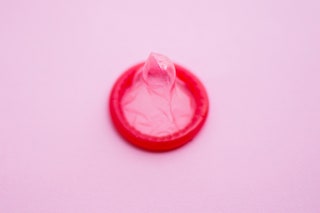
THE CONDOM
What is a condom?
Ah, the good old condom. A stretchy, latex (rubber), polyisoprene or polyurethane barrier worn around the penis to stop a man's semen from coming into contact with his sexual partner.
How effective are condoms?
When used correctly, condoms are 98% effective, but there's the issue of a condom breaking (usually due to snags caused by finger nails or jewellery), or else putting the condom on the tip of the penis the wrong way round, coating it in pre-ejaculation sperm, then flipping it over and using it anyway.
Plus points of condoms
Condoms are the only - yes, the only - form of contraction that protect against sexually transmitted infections. If you're not in a committed sexual relationship where both people have had a recent check up, it's a very good idea to use condoms.
They are hormone-free, meaning no unwanted side effects or health risks. Also, you don't have to use them or even think about them any time other than when you're about to have sex.
Negatives to condoms
They interrupt sex and can be a bit of a mood-killer. If your partner is a lingerer (if he likes to stay inside you after ejaculating) and his penis loses its erection, the sperm can leak out the sides of the condom - not ideal.
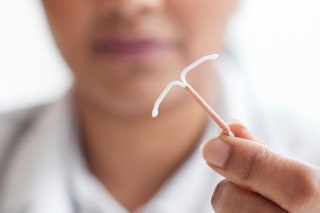
THE IUD
What is the IUD coil?
The intrauterine device, IUD, otherwise known as the coil, is a small, T-shaped device that's put into your womb (uterus) by a doctor or nurse.
There's a hormonal coil, which releases progesterone into the womb, and a non-hormonal version, which releases copper to prevent pregnancy.
How effective is the coil?
The coil is more than 99% effective and doesn't rely on the user for its efficacy, meaning that once it's in there, you can forget about it and still be covered.
Plus points of the coil
One IUD can last between 5 to ten years, depending on the type (your doctor will tell you), and doesn't depend on the user for efficacy, so it's a great, low maintenance safeguard against pregnancy.
There's no oestrogen in it either, so you can use both varieties if you get migraines, smoke or have high blood pressure.
The copper coil is hormone-free so doesn't interfere with the body's natural state, which many people prefer in light of recent research casting doubt over the side effects of synthetic hormones.
"The intra uterine device or the coil, with or without progesterone, offers up to 5 years of contraception. Slightly more uncomfortable than having your smear done, it is placed and then forgotten. It offers a good option for many, especially if you are planning a family in the near- short future, because as soon as it is removed, your fertility will return," notes Dr Elizabeth Kershaw-Yates.
Negatives of the coil
Insertion and removal can be slightly uncomfortable, and there's a slight risk of infection from the procedure.
It doesn't protect you from STDS, so you'll still need to use condoms with a new sexual partner or if you and your partner haven't had a recent sexual health check up.
Because the copper coil doesn't contain hormones, there are none of the usual side effects that come with contraception, but can cause heavy bleeding. The hormonal coil has all the usual risks - mood swings, tender breasts and changes in skin.
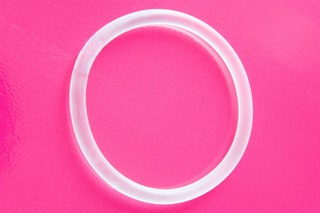
THE VAGINAL RING
What is a vaginal ring?
Also known as the NuvaRing, a vaginal ring is a small soft, plastic ring that you place inside your vagina and sits at the base of your cervix.
It releases a continuous dose of the hormones oestrogen and progestogen into the bloodstream to prevent pregnancy by thickening the mucus at the base of the womb, thinning the lining and prevent release of an egg. Each ring lasts four weeks, and you remove and replace it yourself.
To insert it, you just squeeze it length-ways and insert into your vagina and move it around a bit until it feels comfortable. Don't worry, it can't 'get lost' inside.
How effective is the vaginal ring?
When used correctly, it is 99% effective. There's a chance that the ring could fall out, but if that happens just rinse it and put it back in.
Plus points of a vaginal ring
It's the lowest dose of hormones available in a hormonal contraceptive, and the release of them is localised, meaning there are less severe side effects in terms of mood swings and changes to skin.
The insertion and removal is easy and painless, and you can do it in the comfort of your own home.
It has your contraception covered for one month, so is pretty low maintenance, and your period will typically be lighter and less painful.
Negatives of a vaginal ring
It doesn't protect you from STDS, so you'll still need to use condoms with a new sexual partner or if you and your partner haven't had a recent sexual health check up.
Your partner may be able to feel the ring when you're having sex - but it's not painful in any way, it might just take a bit of getting used to.
Because the ring releases oestrogen, it has all the associated risks (like an increased risk of breast cancer) and people who experience migraines, smoke or have high blood pressure shouldn't use it.
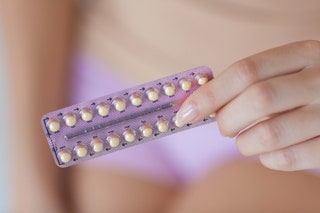
THE COMBINED PILL
What is the combined contraceptive pill?
A combination of artificial versions of the female hormones oestrogen and progesterone. Together, these hormones prevent you from releasing an egg, thickens the mucus in the neck of the womb, making it harder for sperm to penetrate and thins the lining of the womb to reduce the risk of a fertilised egg implanting.
How effective is the combined pill?
A triple whammy of protection that, when taken correctly, is over 99% effective. The problem is, the pill is a user dependent form of contraception, meaning it depends on you taking it properly to be effective, so in reality and when considering human error, it's far less effective.
To take it correctly, you must take it at the same time every day. If you have diarrhoea or vomiting, it can be less effective and you will need to use other methods of contraception for one week.
Plus points of the combined pill
The combination pill can make your periods more regular and lighter as well as alleviate premenstrual syndrome, so it is a great choice if you suffer from heavy bleeding.
There are many types of contraceptive pill, some better than others at addressing different concerns (for example, the pill Yasmin can help treat acne) and you may react differently to different types, so it's well worth going back to your doctor to try a different one if you're experiencing side effects.
The combined pill may reduce the risk of fibroids, ovarian cysts and ovarian and colon cancer.
Negatives of the combined pill
As with most medications, there are some potential side effects like nausea, breast tenderness and mood swings but there are also other more specific concerns.
If you experience high blood pressure, migraines or if you smoke, you might want to opt for a different form of contraception as this pill can increase your risk of thrombosis and stroke.
There is also evidence of a slightly heightened risk of breast cancer.
It doesn't protect you from STDS, so you'll still need to use condoms with a new sexual partner or if you and your partner haven't had a recent sexual health check up.
On top of this, there are more recent concerns over the levels of synthetic hormones women are exposing themselves to and the potential risk of mental health issues. One study conducted by the University of Copenhagen of more than one million women over the course of 13 years confirmed a significant link between hormonal contraceptives and depression. Women taking combined oral contraceptives were 23 per cent more likely to be treated for the mental health condition.
"The combined oral contraceptive pill isn’t suitable for all women," said Dr Elizabeth Kershaw-Yates, GP and one of the medical team at The Online Clinic. "If you are over 50, have a high BMI, smoke or have a family history of deep venous thrombosis, then it is likely your GP or family planning clinic will suggest a different option for you.
"If you still want to take something every day, the progesterone pill, previously described as the mini pill, is suitable for most people. The most important thing to remember is that it must be taken every day to ensure its effectiveness. This pill can also be used when you are breast feeding and is often a good option. The main side effect is that bleeding can be erratic. Although it is often light, the lack of predictability can be irritating. However, a lot of women find themselves without a period at all whilst taking it! As with the combined oral contraceptive pill, if you suffer side effects, speak to your health professional as there are various types of this pill you can try."
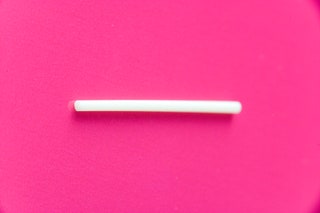
THE IMPLANT
What is the implant?
The contraceptive implant (Nexplanon) is a little, flexible plastic rod that's inserted under the skin in your upper arm by a doctor or nurse. It releases the hormone progestogen into your bloodstream to prevent pregnancy, lasting for 3 years.
How effective is the implant?
99% effective - and it doesn't depend on you using it correctly so you're totally covered without having to think about it.
Plus points of the contraceptive implant
Not having to think about it for three years, safe in the knowledge that you're protected from getting pregnant.
Again, it's oestrogen-free so is great for women who want to avoid taking the hormone.
Negatives to the contraceptive implant
Implanting can be a bit sore, with some bruising afterwards, but rest assured that this quickly passes. It doesn't protect you from STDS, so you'll still need to use condoms with a new sexual partner or if you and your partner haven't had a recent sexual health check up.
It can make your periods stop altogether, which some women find off-putting (but others find liberating!).
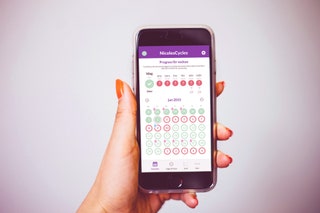
THE APP
What are contraceptive apps?
Contraceptive apps use intelligent algorithms to track and predict your menstrual cycle, alerting you to the days when you are fertile. Some apps like Natural Cycles require you to input your basal body temperature - your lowest and most stable temperature within a twenty-four-hour period - to track your hormone levels, alongside information on your mood and physical symptoms.
How effective are contraceptive apps?
Well, this one is still a bit up for debate. While Natural Cycles has been certified as a contraceptive device and boasts over 99% accuracy (an independent study published in The European Journal of Contraception & Reproductive Health Care, the rate of false green days within the fertile window when used correctly was found to be less than 0.1 per cent), it is still a user-dependent form of contraception, meaning the actual efficacy of protection for its users is much lower, due to factors like human error, forgetting to input your temperature, or just ignoring the advice the app provides and having unprotected sex on a fertile day.
Plus points of contraceptive apps
They are completely hormone free, meaning no unpleasant side effects. Plus, it doesn't interrupt sex like condoms can do and doesn't require a physical barrier between you and your partner.
Users also praise this form of contraception for allowing them to become more in tune with their bodies, and far more familiar with their cycles.
Negatives of contraceptive apps
Due to the high potential for user-related error, an app requires the utmost vigilance from the user. Even then, there could be blips in the algorithm resulting in incorrect advice.
It doesn't protect from STDs, so it's best to only use an app if you are in a committed relationship and both you and your partner have been tested at a sexual health clinic.

THE MINI PILL
What is the mini pill?
A progestogen-only pill (so no oestrogen) that is taken at the same time every day to thicken the mucus in the cervix to stop sperm reaching an egg and also stop ovulation.
How effective is the mini pill?
When taken correctly it can be over 99% effective, but like with the combination pill, in reality it is less effective with typical use seeing an efficacy rate of around 92%.
The only thing is there's a much smaller window for error than the combined pill. You'll need to take it at the same time everyday (within a three hour window) to be covered.
Plus points of the mini pill
If you suffer from migraines, high blood pressure or if you smoke, this is the pill for you as it doesn't contain any oestrogen so has less effect on your risk of stroke or blood clots.
Many people feel more comfortable taking fewer hormones, especially with the potential links between oestrogen and breast cancer.
Negatives of the mini pill
As well a risk of nausea, breast tenderness and mood swings, the mini-pill can make you break out and more likely to get spots. It can also cause irregular periods and spotting (light bleeding throughout the month).
It doesn't protect you from STDS, so you'll still need to use condoms with a new sexual partner or if you and your partner haven't had a recent sexual health check up.
In the same way as the combination pill, the mini-pill contains artificial hormones and the same study found those on the progestogen-only pill (known as the mini-pill) were 34 per cent more likely to be treated for depression.

© TopicFashion Privacy Policy Contact us